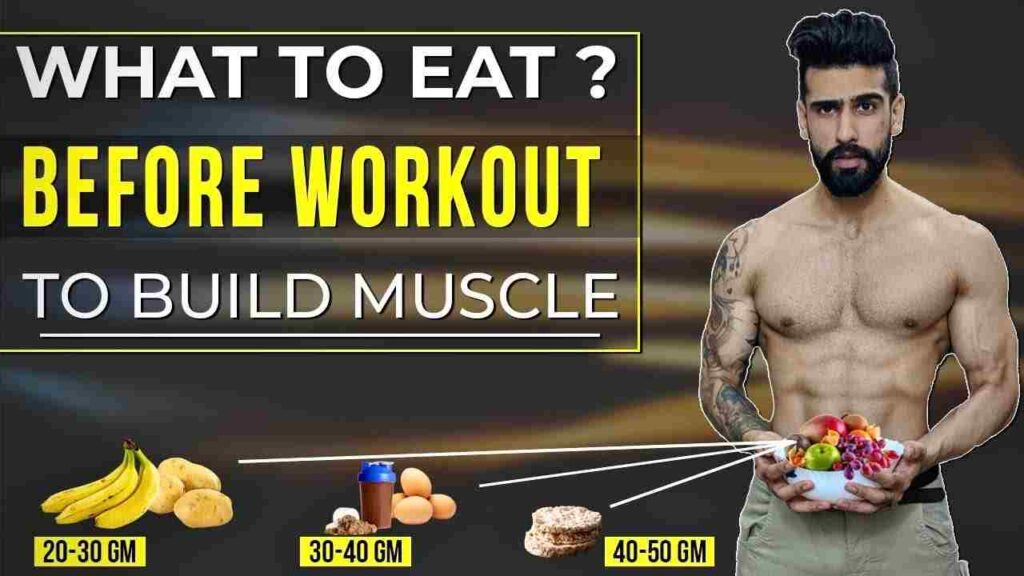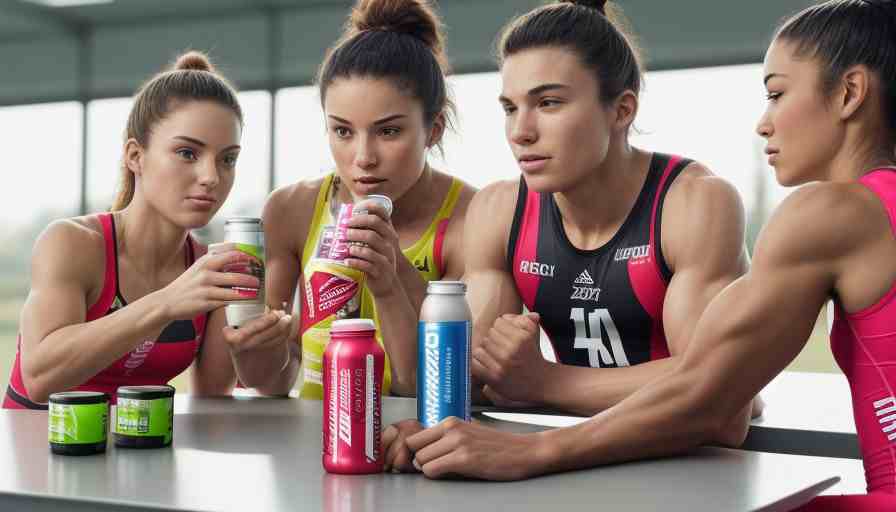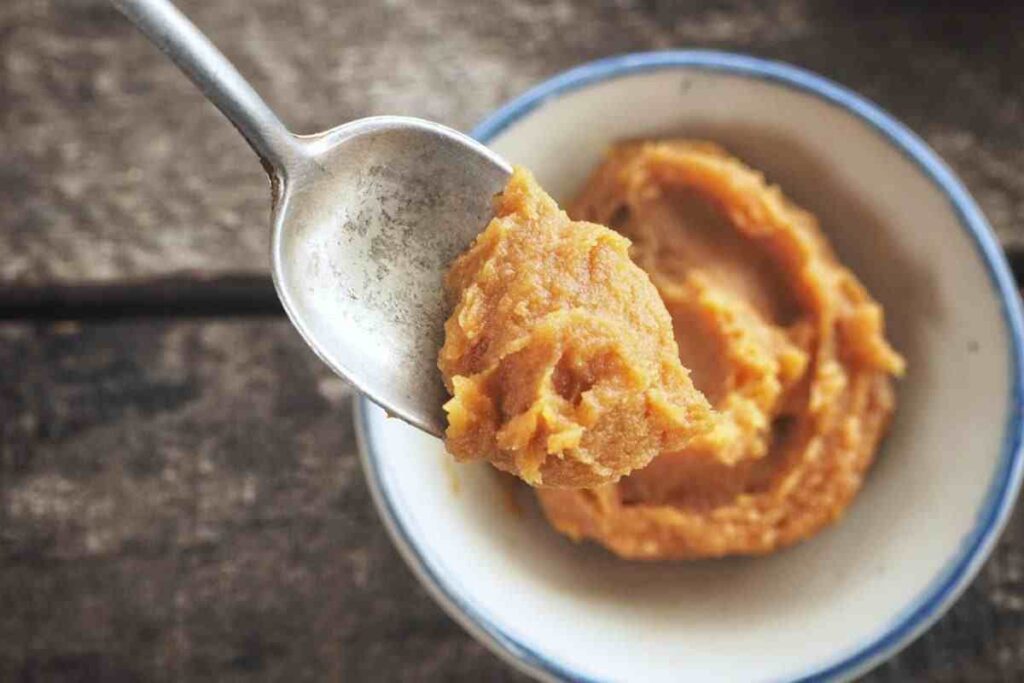In the world of fitness and bodybuilding, there’s a common belief that consuming carbohydrates after a workout is essential for muscle growth. But what happens if you skip the post-workout carbs? Will your hard-earned muscles start to shrink? This article aims to explore these questions and shed light on the role of carbohydrates in muscle building and recovery. We’ll delve into the science behind muscle growth, the impact of not eating carbs after workout, and much more. Whether you’re a fitness enthusiast or just curious about nutrition, this article will provide you with valuable insights. So, let’s dive in!
The Role of Carbohydrates in Muscle Building
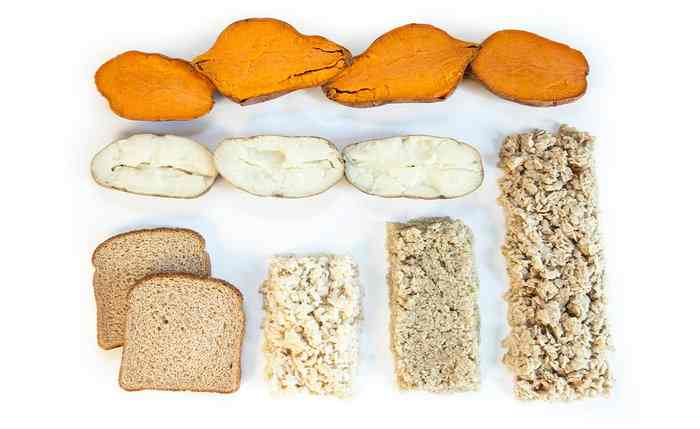
Carbohydrates are essential for muscle building because they provide energy, replenish glycogen, prevent muscle loss, and stimulate insulin. Here are some key points about the role of carbohydrates in muscle building:
- Carbohydrates are the primary fuel source for your muscles. If you don’t get enough carbs, your muscles won’t have the energy to perform at their best.
- Carbohydrates help to restore glycogen, which is the stored form of glucose in your muscles. Glycogen is depleted during exercise and needs to be replenished to support muscle growth and recovery.
- Carbohydrates help to prevent muscle loss by sparing protein. Protein is the building block of muscle, but it can also be used as a fuel source when carbs are low. By consuming enough carbs, you can preserve your muscle mass and use protein for muscle synthesis.
- Carbohydrates help to stimulate insulin, which is a hormone that transports glucose and other nutrients into the muscle cells. Insulin is anabolic, meaning it promotes muscle growth and repair.
To optimize your carb intake for muscle building, you should follow these tips:
- Eat complex carbohydrates, such as whole grains, fruits, vegetables, and legumes. These carbs are slow-digesting and provide a steady supply of energy and fiber.
- Eat carbohydrates before and after your workout. This will help to fuel your performance and replenish your glycogen stores. Aim for about 0.5 to 1 gram of carbs per pound of body weight per meal.
- Eat carbohydrates with protein. This will help to enhance the insulin response and deliver more nutrients to your muscles. Aim for a ratio of 2:1 or 3:1 of carbs to protein per meal.
- Avoid refined and processed carbohydrates, such as white bread, candy, soda, and pastries. These carbs are high-glycemic and can cause spikes and crashes in your blood sugar, which can lead to fat storage and inflammation.
SHOP FOR THE BEST CARB SUPPLEMENT ON AMAZON
Carbohydrates are not the enemy of muscle building. They are a vital component of a balanced diet that supports your training and recovery. By choosing the right carbs, timing them properly, and combining them with protein, you can maximize your muscle growth potential.
The Impact of Not Eating Carbs After Workout
Not eating carbs after workout can have some negative effects on your muscle recovery and performance. Here are some of the possible consequences of avoiding carbs post-workout:
- You may experience lower energy levels and reduced endurance for your next workout. Carbs are the main source of fuel for your muscles, and if you don’t replenish them after exercise, you may not have enough glycogen to power through your next session.
- You may impair your muscle growth and repair. Carbs help to stimulate insulin, which is a hormone that transports nutrients, including protein, into your muscle cells. Insulin also helps to prevent muscle breakdown and promote muscle synthesis. Without carbs, your insulin response may be blunted and your muscle recovery may be compromised.
- You may increase your muscle soreness and inflammation. Carbs help to restore glycogen, which is the stored form of glucose in your muscles. Glycogen depletion can lead to muscle damage and soreness. Carbs also help to reduce the post-exercise rise in cortisol, which is a stress hormone that can trigger inflammation and muscle catabolism.
To avoid these negative effects, it is recommended to eat some carbs within an hour of your workout, preferably along with some protein. The amount and type of carbs you need may vary depending on your goals, body type, and workout intensity. However, a general guideline is to aim for about 0.5 to 1 gram of carbs per pound of body weight per meal, and choose complex carbs that are rich in fiber and nutrients. Some examples of good post-workout carbs are whole grains, fruits, vegetables, and legumes.
Eating carbs after workout is not essential for everyone, and some people may prefer to follow a low-carb or keto diet for various reasons. However, for most people who want to optimize their muscle recovery and performance, carbs can play a beneficial role in their post-workout nutrition.
The Impact of Low-Carb Diets on Muscle Breakdown
Low-carb diets are popular for weight loss, but they may have some negative effects on muscle breakdown. Muscle breakdown occurs when the body uses muscle protein as a source of energy, instead of carbohydrates or fat. This can lead to muscle loss, reduced strength, and lower metabolism. Here are some of the factors that influence muscle breakdown on a low-carb diet:
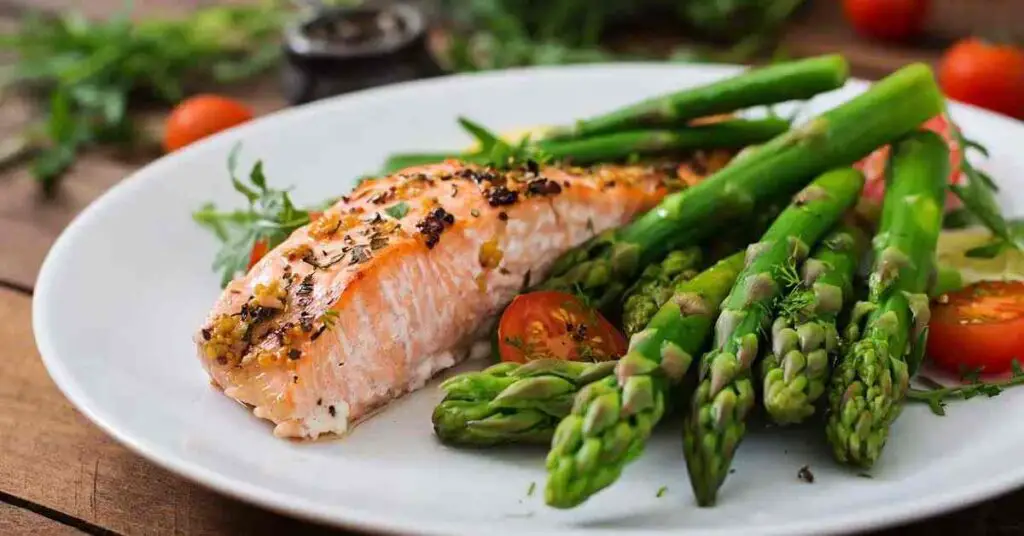
- The level of carbohydrate restriction: The lower the carb intake, the higher the risk of muscle breakdown. This is because the body needs some glucose to fuel the brain and other tissues that cannot use fat or ketones. If the carb intake is too low, the body will use amino acids from muscle protein to make glucose through a process called gluconeogenesis. This can be minimized by consuming enough protein and calories, and by cycling carbs on some days or around workouts.
- The type and intensity of exercise: Exercise can increase muscle breakdown, especially if it is high-intensity or long-duration. This is because exercise depletes glycogen, which is the stored form of glucose in the muscles. If glycogen is low, the body will use more muscle protein to fuel the exercise. This can be prevented by consuming some carbs before and after exercise, and by choosing low-impact or moderate-intensity activities.
- The duration of the diet: The longer the low-carb diet, the more the body adapts to using fat and ketones as fuel. This can reduce the need for glucose and spare muscle protein. However, this adaptation may take several weeks or months, and it may vary from person to person. Therefore, it is advisable to monitor the effects of the low-carb diet on muscle mass, strength, and performance, and to adjust the carb intake accordingly.
In summary, low-carb diets can cause muscle breakdown, but this can be mitigated by consuming enough protein and calories, by cycling carbs on some days or around workouts, by choosing low-impact or moderate-intensity exercise, and by monitoring the results. Low-carb diets are not necessarily bad for muscle, but they require careful planning and individualization.
How Many Carbs You Need to Build Muscle
The amount of carbs you need to build muscle depends on several factors, such as your body weight, activity level, training intensity, and fitness goals. Carbs are essential for muscle building because they provide energy, replenish glycogen, prevent muscle loss, and stimulate insulin.
A general guideline is to consume 8 to 10 grams of carbs per kilogram of lean body weight daily to optimize strength performance and hypertrophy, per a 2022 meta-review. However, this may vary depending on your individual needs and preferences. Some people may benefit from lower-carb or higher-carb diets, depending on their metabolic response, body composition, and health status.
To determine the best carb intake for you, you should monitor your progress, performance, and recovery, and adjust your carb intake accordingly. You should also choose complex carbs that are rich in fiber and nutrients, such as whole grains, fruits, vegetables, and legumes. These carbs are slow-digesting and provide a steady supply of energy and satiety.
Types of Carbs Best for Building Muscle
When it comes to building muscle, not all carbohydrates are created equal. Here are some of the best types of carbs for muscle building:
- Rice: Rice is a great source of carbohydrates that mixes well with most meals and is easy to prepare. It’s also one of the easiest carbohydrate sources to mass-produce if you’re a fan of meal preparation.
- Pasta: Pasta is another high-carbohydrate food choice that can help you stock up on much-needed calories. It also comes with a high variety of choice, with a diverse array of preparatory options depending on your palate.
- Bread: Bread is a versatile carbohydrate source that can be incorporated into a variety of meals.
- Oats: Oats are a great source of complex carbohydrates, which provide a slow and steady release of energy.
- Cereal: Cereal can be a quick and convenient source of carbohydrates, especially for breakfast.
- Quinoa: Quinoa is a complete protein and a good source of complex carbohydrates.
- Chickpeas: Chickpeas are a good source of both protein and carbohydrates.
- Lentils: Lentils are rich in protein and carbohydrates, making them a great choice for muscle building.
- Fruits: Fruits like bananas are a good source of natural sugars, providing a quick energy boost.
- Vegetables: Vegetables like sweet potatoes are a good source of complex carbohydrates.
SHOP FOR THE BEST MUSCLE-BUILDING SUPPLEMENT ON AMAZON
Remember, the key to effective muscle building is not just about the type of carbs you eat, but also the timing of your carb intake. Consuming carbs after workout can help replenish glycogen stores in your muscles and stimulate muscle growth.
The Effect of Not Working Out for a Week
Taking a break from working out for a week can have various effects on your body. Here are some key points:
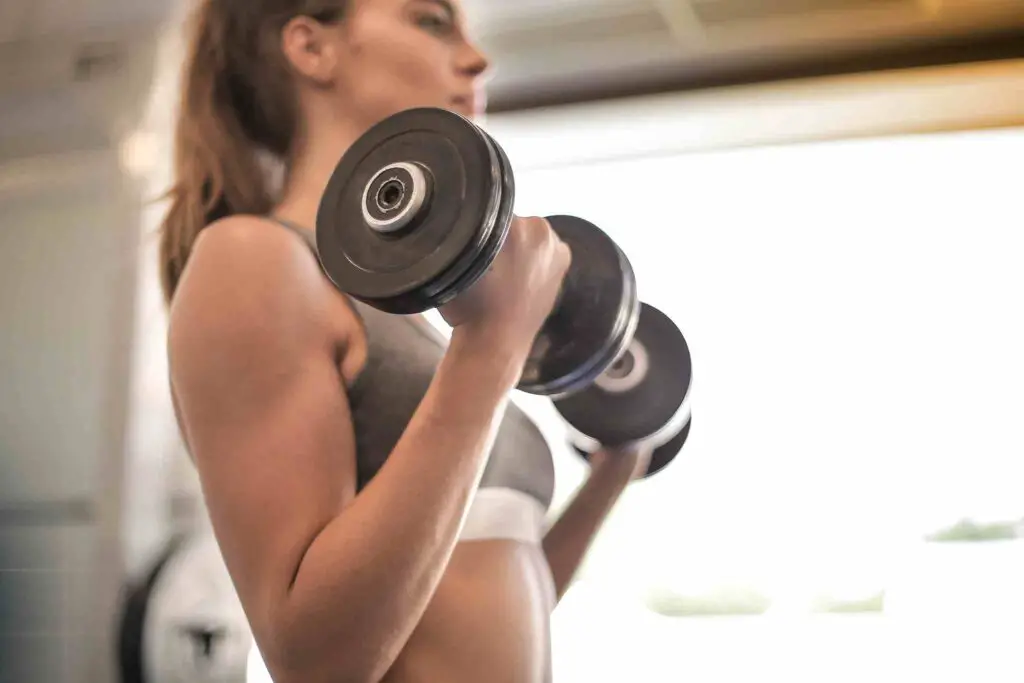
- Endurance Loss: Your aerobic capacity, which is crucial for endurance, can drop by 5 to 10% after three weeks of no exercise.
- Muscle Strength: Muscle strength starts to decrease after around three weeks. However, the rate of decrease can vary based on factors such as your level of fitness and muscle mass.
- Workout Difficulty: Your workouts may feel harder after only a week off, but the actual muscle won’t go away that fast.
- Muscle Mass: A 2015 study found that it takes only two weeks of skipped workouts to lose significant muscle strength. Younger people who were immobile for that amount of time lost one-fourth of their muscle mass, while older people lost a third.
- Rest Days: Rest days are important for your body to recover and get stronger. However, these should be interspersed with actual workouts.
Traditional Squats vs. Bulgarian Split Squats
These effects are not permanent, and you can reverse them by resuming your workouts. However, you should ease back into your exercise routine to avoid injury and overtraining. You should also maintain a balanced diet that provides enough protein, carbs, and calories to support your muscle recovery and growth.
The Alternatives to Eating Carbs After a Workout
Eating carbs after workout can help you replenish your glycogen stores, prevent muscle loss, and stimulate insulin, which are important for muscle recovery and growth. Some of the alternatives to eating carbs after a workout are:
- Protein-rich foods: Protein is essential for muscle repair and growth after exercise. It also helps to keep you full and prevent overeating. Some examples of protein-rich foods are eggs, chicken, fish, tofu, yogurt, cheese, nuts, and seeds.
- Healthy fats: Fats are another source of energy for the body, and they also support hormone production, brain function, and inflammation control. Some examples of healthy fats are avocado, olive oil, coconut oil, butter, nuts, and seeds. However, fats should be consumed in moderation, as they are high in calories.
- Non-starchy vegetables: Vegetables are low in carbs but high in fiber, vitamins, minerals, and antioxidants. They can help to fill you up, improve your digestion, and protect your health. Some examples of non-starchy vegetables are leafy greens, broccoli, cauliflower, carrots, celery, cucumber, tomato, and zucchini.
SHOP FOR THE PROTEIN SUPPLEMENT ON AMAZON
These are some of the alternatives to eating carbs after a workout, but they are not the only ones. Depending on your goals, preferences, and dietary needs, you may find other options that work better for you.
FAQs
Q 1. How many carbs do I need to eat after a workout?
Ans. There is no definitive answer to this question, as the optimal amount of carbs may vary depending on your body weight, activity level, training intensity, and fitness goals. However, a general guideline is to consume 8 to 10 grams of carbs per kilogram of lean body weight daily to optimize strength performance and hypertrophy, per a 2022 meta-review.
Q 2. What are the best sources of carbs for post-workout nutrition?
Ans. The best sources of carbs for post-workout nutrition are complex carbs that are rich in fiber and nutrients, such as whole grains, fruits, vegetables, and legumes. These carbs are slow-digesting and provide a steady supply of energy and satiety. Some examples of good post-workout carbs are rice, pasta, oats, bananas, and quinoa.
Q 3. How soon should I eat carbs after a workout?
Ans. The timing of your carb intake after a workout may not be as important as the total amount of carbs you consume throughout the day. However, some studies suggest that eating carbs within an hour of your workout may enhance your glycogen synthesis, insulin response, and muscle recovery. If you are not able to eat a meal within this time frame, you can have a snack or a supplement that contains some carbs and protein.
Q 4. Can I eat carbs before a workout instead of after?
Ans. Eating carbs before a workout can also be beneficial, as it can provide you with energy and prevent fatigue during exercise. However, eating carbs before a workout does not replace the need for eating carbs after a workout, as your muscles still need to replenish their glycogen stores and repair the damage caused by exercise. Therefore, it is advisable to eat carbs both before and after your workout, unless you have a specific reason to avoid them.
Conclusion
Carbohydrates are essential for muscle building as they provide energy for workouts, prevent muscle breakdown, and enhance muscle growth. If you don’t consume enough carbohydrates, you may lose muscle mass and strength, and your performance and recovery could be compromised.
However, if you don’t eat carbs after a workout, the only real downside is that muscle glycogen will be resynthesized more slowly. But skipping the post-training carbs won’t make a great deal of difference to the speed at which you gain muscle, and is not as vital as was once believed.

Good day, and welcome to Fitthour. My name is Shubham Vijay, and I am a certified personal trainer and nutrition coach with 6 years of experience in the fitness industry. At Fitthour, we specialize in types of training, such as strength training, cardio, or HIIT, and our mission is to help clients achieve their fitness goals and improve their overall health.

